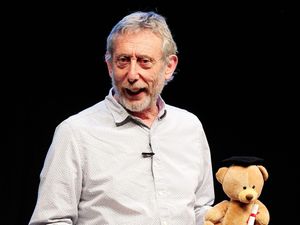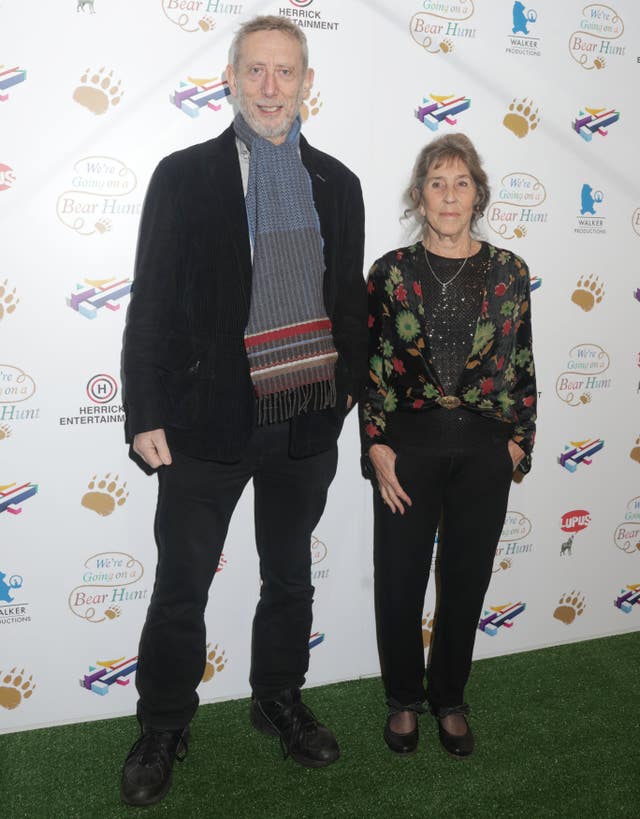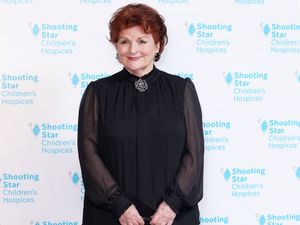Michael Rosen on importance of rhyme in new We’re Going On A Bear Hunt sequel
The former children’s laureate has teamed up with the original story’s illustrator, Helen Oxenbury, for a new book titled Oh Dear, Look What I Got!

Author Michael Rosen has said rhyming patterns within children’s books can help young readers speak and begin to understand feelings.
His comments came ahead of the publication of the sequel to his popular children’s book We’re Going On A Bear Hunt.
The original 1989 book, which follows a family who battle through a river, mud and a snowstorm as they seek out a bear, has won numerous awards and was also adapted into an animation for Channel 4.
Former children’s laureate Rosen has teamed up with the original story’s illustrator, Helen Oxenbury, for a new book titled Oh Dear, Look What I Got! which will feature a similar rhyming pattern.
Discussing the language patterns on BBC Radio 4’s Today programme on Monday, Rosen said: “If you have repetition, then you also get predictability.
“So a young child aged one, even one to less than one, as they hear that repetition, connected to wonderful pictures, they start to be able to say the words themselves to start off with when they’re in that kind of pre-speech bit, when they’re sort of round about nine months, you can hear them saying stuff that sounds like language, that has the rhythm.”
He added that as children get older the language goes from “predictable to portable” so youngsters will recite things they have learnt.
“Now if what you’re writing is predictable, is funny or interesting or sad or intriguing, then they’re carrying forms of portable feeling, or even, it sounds grandiose, philosophy – of things being fair, unfair, things being exciting, scary – so that’s the power of repetition,” he said.
The author admitted he did not have a clear answer for why it had taken them so long to do a sequel, adding: “It’s like asking why the Beatles didn’t reunite – you never really know exactly.”
The new book follows a boy as he goes from shop to shop seeking a series of items, but each visit brings an “animal surprise”.
Rosen said the story is an update to one that featured in his 2015 poem collection titled A Great Big Cuddle, and has been brought to life by Oxenbury’s illustrations.

The author revealed he was initially “puzzled and delighted” by Oxenbury’s pictures for their 1989 book because they had been so different from what he had imagined.
He said: “It started out as a kind of American folk song and a song in the Brownies, in the Scout movement, and I adapted it under the direction of the boss of Walker Books at the time, David Lloyd.
“And I didn’t really have any kind of picture as to what would happen, because it was more like a play rhyme that you do with young children, action rhyme.
“And then Helen’s pictures, which I saw for the first time, looked like this wonderful, as we know, family adventure somewhere in the English countryside or along the seaside and I was just staggered and amazed and couldn’t match up the two things.
“I mean, wonderful art that was out there… So I was puzzled and delighted at the wonderful art, but sort of curious as to how it fitted this weird play game that I used to play with when I do performances in schools.”
Oxenbury said illustrating the new book was “quite a problem” at first because she found it difficult to organise but once they had a plan she thought it was “great fun”.
Rosen served as children’s laureate from 2007 to 2009 and won the PEN Pinter Prize in 2023 for his work of “outstanding literary merit”.
He has more than 100 books to his name, including Fantastic Mr Dahl, Sad Book and On The Move: Poems About Migration.





